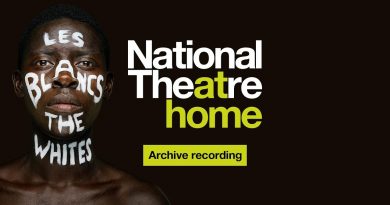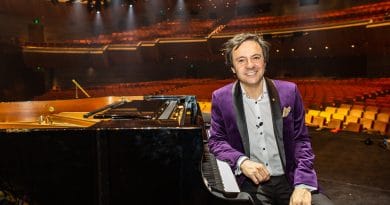Are young people the key to the economic recovery of live theatre?
Historically, theatres have the reputation of being a place where the elite would gather to be entertained; a place to be seen. Predominantly the more mature audiences would gather to watch a spectacle and marvel at its glory. The theatre was a place where one would have to dress a certain way, behave a certain way and pay a hefty price for the ticket for the privilege.
However, I believe that the arts should be witnessed by everyone.
About a decade ago, the Arts Council England and the Department for Culture, Media and Sports created a much-needed lifeline for the UK theatre scene, called A Night Less Ordinary (ANLO). ANLO ran from February 2009 until March 2011 and as many of you may remember, this was exactly the time the world was gripped by the Global Financial Crisis. During its active years, the project’s goal was to find out if the cost of visiting the theatre was the deciding factor, for people under that age of 26, when deciding whether to spend their leisure time attending a live performance. More than 200 theatres in England took part in the project.

The project agreed to pay for up to 500,000 tickets out of which nearly 80% were used, with an average of 5 tickets per person. Tickets could be assessed by young people in advance, either through the dedicated mobile app, website or by requesting at the theatre box office, assuming there were seats remaining for any given performance. Once a seat was allocated, the young person could attend an event with friends or family over the age of 26 if they so desired, they would simply need to pay for the additional ticket. Groups of young people attending together would all be able to access the free ticket scheme. After the performance, the recipient of a free ticket would be required to complete an online quiz about their experience before they would be able to access another complimentary ticket.
The results were astounding.
Researchers found that 278,000 of the free tickets assigned went to people who later said that they would not have attended the theatre, had it not been for the free ticket.
According to the project’s report, the first reason young people gave for rarely attending live entertainment was the cost. Another reason was that young people felt there was too much of a gap between their interests and what the content being offered.
Participating theatres got the message and threw themselves hard into exploring ways they could better serve their audiences with future programming. By the end of the project, many young people who took part in the scheme said that they enjoyed the experience and would recommend the shows they attended to their family and friends.
This offered a breath of fresh air for the UK theatre scene in the years that followed. The interest in theatre performances increased with young people visiting more often than ever before.
As the Australian theatre industry is desperately seeking ways to ensure it is able to stay afloat after the COVID-19 pandemic, just how important is government funding to rebuilding the theatre scene and strengthening the local economies?
The arts industry will be in desperate need of audiences once the pandemic subsides and live performance resumes. Sponsorship such as this could go a long way to removing the barrier to entry for younger audiences, and bring larger crowds of young people who might otherwise not opt to spend their hard-earned income on a theatre ticket.
The benefits of encouraging young people into the theatre are numerous:
According to psychologist Dr Glenn D. Wilson:
Theatre is one of the higher cultural activities that mark us as imaginative, creative and truly human.
In a world where fear is driving our decision making, staying human is something that we need to remember.
Dr Wilson explains that thanks to the inclusion of the relatable themes in many theatrical performances, people are able to connect with to each other on a higher level while reflecting on their own personal relationships.
Another great benefit is investment in future generations. Likened to investing in a better education system, the comparison comes from the fact that young people will more likely spend locally if they were offered incentives to do so. Young adults who got a free ticket to a theatre performance not only said that they were more likely to attend the theatre in the future but oftentimes took along a full paying audience member that may not have attended otherwise; and also spent more money in the venues on food, beverage and merchandise. go back and become returning customers. In time, this is a great step towards reinforcing the local economy and supporting the local theatre performers, actors and artists.
It took hard work and dedication not only from the government and cultural agencies involved but from the venue operators too. However, with great marketing campaigns, a simple and fast booking system and diverse programmes to attract this audience group, the result speak for themselves.
A Night Less Ordinary was deemed a huge success and its finding provide an excellent strategy to combine the world of culture and entertainment.
Could similar results be achieved from a similar scheme in Australia, in the post-COVID-19 era?
The full report for A Night Less Ordinary can be found here.




